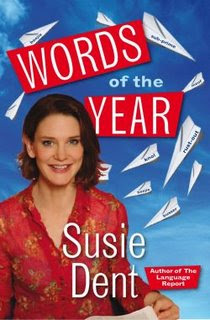
I've been watching Jamie's Ministry of Food, a TV series in which southern celebrity chef Jamie Oliver tries to improve the eating habits of the people of
Rotherham (a large, northern, industrial town).
During the Second World War, the Minister of Food oversaw food rationing. In Rotherham, Jamie establishes his own Ministry of Food to educate the public about healthy eating and give cooking demonstrations.
With a title like Ministry of Food, you might expect Jamie's programme to look at the politics of healthy eating, or the role of the government in encouraging home cooking. But, to me, the programme's tone is very much religious rather than political - something that I don't think has been picked up on much elsewhere.
'Pass it on'
One of Jamie's key concepts, as you can see from the picture above, is what he calls 'pass it on'; he teaches a small group of people how to cook a number of simple dishes, and they in turn teach each dish to four friends. Those friends teach other friends, and so on.
Within a small number of steps - or so the theory goes - all of Rotherham will know how to cook. Jamie is, in effect, evangelising about food, and recruiting others to carry on spreading the word.
Jamie's small group originally consists of eight people, to which four more are later added. So one leader, twelve disciples. But wait - one of those twelve fails to 'pass it on', in effect betraying Jamie and his message.
Mick the minerThere are other religious themes in the programme, too. One of the people that Jamie meets is a coal miner called Mick who has never cooked a meal. Jamie shows him how to prepare a simple dish, and Mick is instantly converted - he will go on to cook for his family every single night. A real
'road to Damascus' moment.
Jamie meets Mick at an event held at Rotherham United FC. In a practical demonstration of 'pass it on', Jamie teaches two people how to cook a dish; those two people teach four; those four teach eight; and so on. Soon, hundreds of people are cooking Jamie's dish.
In other words: a large group of people gather together in a grassy place to listen to one man, and are fed by that same man in a demonstration of his powers.
Finally, there's the title of the programme. Perhaps it's a reference not to the old government Ministry of Food, but to Jamie's own ministry; he is the minister, and his religion is food. Amen.
 I was a little confused when I first saw this advert for The Times – especially by the fourth paragraph, "The coldest temperature on record is -27.1C, in Braemer, in February 1895 and January 1982."
I was a little confused when I first saw this advert for The Times – especially by the fourth paragraph, "The coldest temperature on record is -27.1C, in Braemer, in February 1895 and January 1982."














